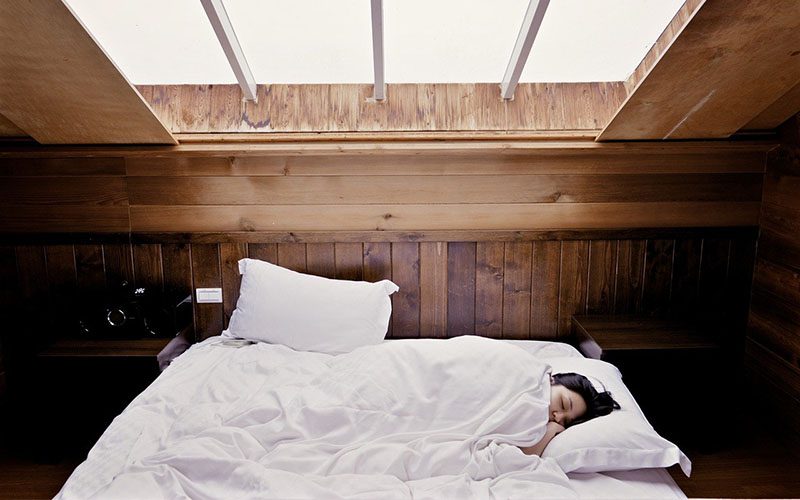Many things in our daily lives affect our oral health. What we eat, what we do, and how we care for our teeth are all important to monitor if we want that perfect smile.
Unfortunately, there are also a few nighttime conditions that affect our teeth. The one we’re looking at today is sleep apnea.

(Free-Photos / pixabay)
What is Sleep Apnea?
Sleep apnea is a common sleep disorder that affects your breathing. People who suffer from sleep apnea are known to have erratic breathing patterns. Occasionally, sufferers stop breathing entirely for a few seconds. This reduces oxygen reaching the lungs, leading to mental and physical exhaustion, lack of energy, and difficulty concentrating.
Sleep apnea causes vary depending on the size of the sufferer’s tongue or bodyweight, or how strong their throat muscles are. Some of the symptoms of sleep apnea are:
- Regular, loud, heavy snoring
- Sudden gasps during sleep
- Reduced rate of breathing
- Sleepiness during the day
- Decreased attention span
- Forgetfulness
- Dry mouth
- Headaches upon waking
Sleep apnea is most common in men but does occasionally affect women. Other symptoms, especially in women, include anxiety, depression, insomnia, and other sleep-related health conditions.
How Does Sleep Apnea Affect Your Teeth?
Disrupted sleep affects many aspects of our daily lives. Reduced mental function, exhaustion, and other conditions caused by weariness can reduce our daily productivity and social abilities. Proper sleep is essential for helping our bodies to heal and recover. Our brains also rebuild new connections during rest.
A lack of sleep prevents these important functions from happening. Some oral conditions related to poor sleep include bad breath, mouth ulcers, and periodontal disease. Sleep apnea is also connected to mouth breathing, bruxism, and TMJ disorders.
Mouth Breathing
Sleep apnea causes disruptions in the throat and nasal passages. Without the oxygen we would ordinarily get, our bodies will override this disruption with deeper, harder breaths. Usually, these occur in the form of gasps, as we can take in more air through our mouths. This is known as mouth breathing and can lead to issues when done too often.
Overexposure of our teeth to air causes a dryness around them and our gums. This can cause tooth decay to occur as bacteria gather on the teeth. This dryness also results in plaque buildup, and in more severe cases, can lead to mouth sores, inflammation of the gums (gingivitis), and sometimes periodontal disease.
Bruxism
Bruxism is the scientific term for teeth grinding. This is when we involuntarily clench our jaws and grind our teeth together. It can happen at any point during the day, but it most often happens at night when we sleep.
Teeth grinding causes a lot of physical damage to our teeth and jaws. Frequent grinding wears away at the surfaces of our teeth, leading to chips, cracks, or breaks. Generally, this will not be noticeable to the eye, but one of our Layton family dentists will be able to notice the signs of bruxism. While the damage from this grinding can be repaired, delaying treatment can have other adverse effects.
The action of clenching your jaw could lead to muscular pain in your head, neck, and face. This can cause disruption to your sleep, leaving you feeling drained as well as achy. Further, it can cause dryness in your mouth and throat and chapped lips.
Temporomandibular Joint Disorders
The temporomandibular joint is the piece of muscle that connects the lower jaw to the upper jaw. When things go wrong with this joint, you could develop TMD (temporomandibular disorders).
Sleep apnea often goes hand in hand with these disorders. It causes bruxism and mouth breathing; these will help contribute to the development of TMD. Some symptoms include:
- Jaw pain – caused by tension and involuntary movements in the jaw during sleep.
- Pain in the head, neck, and shoulders – again, caused by the involuntary movement and tension.
- Lockjaw – occurs when the muscles tense up, affecting their opening.
- Joints clicking or grinding when moved – the wear-down of the muscles and bones can lead to them catching and locking, clicking painfully when they release again.
- Problems chewing – the above issues can lead to weaker muscles and pain when chewing.
How to Prevent or Treat Sleep Apnea
There are a few treatments available to help prevent sleep apnea. Primarily, the idea is to prevent obstruction to the airflow during sleep. By doing this, you can stop the symptoms of sleep apnea and so prevent any more oral problems.
Weight Loss
The first thing most doctors will look into for sleep apnea is whether you are overweight. Additional weight around the face and neck can lead to pressure building around the airways. This means that by reducing your weight, you can reduce sleep apnea.
Nasal Decongestants
There are decongestants on the market that are designed to ease any blockages that may form. This is a treatment for light sleep apnea and will also relieve snoring.
Continuous Positive Airway Pressure (CPAP)
CPAP therapy is a treatment for heavy or obstructive sleep apnea. It is administered through a facemask that is worn during sleeping hours. It is attached to a pump that feeds a steady airflow into the mouth and nose, clearing the airways. It is a highly effective treatment for sleep apnea but can be uncomfortable to wear.
Surgery
Uvulopalatopharyngoplasty (UPPP) is quite a mouthful, but it’s also a surgery that removes the extra tissues that hang at the back of the throat. These tissues can obstruct the nasal passages, and their removal will reduce the blockage to help relieve sleep apnea.
With a combination of a skilled Utah family dentist and physician, you can get help for your sleep apnea and preserve your all-around health.
